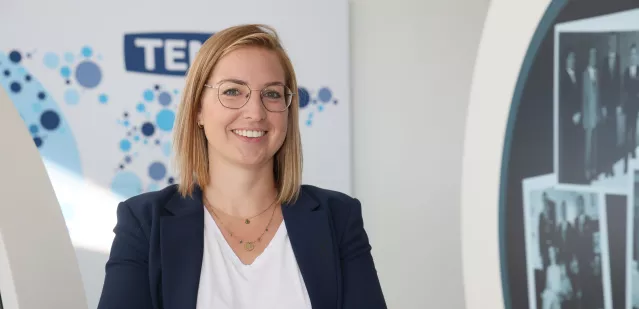
“Once I’d heard about Logistics Management as a degree, I knew I wanted to focus on it and not just have logistics as a component of a management or business course. Back then, the Netherlands was the only country that offered this kind of programme – and where I could afford to study. And I liked the approach NHL Stenden offered: the practical approach, working in small groups, and interacting with each other and the lecturer. I started the degree not knowing whether it was the right or wrong thing to do. I just didn’t know what else I could do. And in the end, it was the right choice. Absolutely the right choice.”
Essential soft skills
“The teamwork is what I feel I got the most out of during my studies. And the soft skills that come with it, like how to interact with different types of people and understand different contexts and cultures – and how to present. When you think of logistics management, you might think mainly of structure, formulas and processes but you need to be able to explain and communicate these ideas to others and so presentation skills are essential. Especially as a manager. Sometimes I see presentations and the presenter is nervous, they don’t know how to organise their story or make it understandable or relatable for the audience. It’s a nightmare. I’m so glad we got those skills during our studies. I can remember how nervous I was in my very first presentation but now I’m really relaxed. I’ve done so many presentations, I don’t even practice them anymore.”
Personal approach
“Another thing I really liked about my studies was the personal support. I’m still in touch with one of my lecturers and it was talking to him towards the end of my bachelor’s degree that helped me decide to go on to do a master’s, And that then led me into supply chain management. I’m now Director of Supply Chain Management at TENTE. In short, this means I’m responsible for guiding the flow of goods efficiently and optimising processes by providing more transparency. This involves a lot of strategy and consultancy. It means looking at what we need to develop in order to support the company’s growth strategy. What do we need to produce and where? And how can we optimise product flows so the right components are in the right place at the right time?”
Project management logistics
“For instance, if the company wants to build a production plant closer to a particular market, we come up with the strategy and lead the projects for actually transferring and building up the production. We look at the capacity that’s needed, the machines we need, and the sort of knowledge we need in place. I do the project lead and although I don’t have the technical background, I’m good at managing projects. I can bring the people with the necessary knowledge together and bring and maintain the structure in the project. So much of my work is project-based which is why the skills I learned at NHL Stenden are still so relevant. In projects, you need to assign responsibilities, set deadlines, make sure everyone knows what they’re doing and follow-up on progress. That’s kind of my skillset: project management logistics.”
Find your interest
“The Logistics Management programme really can take you anywhere. People from my degree are in all kinds of different fields now. One person went from logistics into financial controlling and then into sales and another friend left supply chain management to go into baking and is now doing the menu planning for a food box company. So she’s actually back in logistics but in a different way and in combination with another passion. Finding the right job and the right degree is so much about thinking about your interests. I think it really helps to talk to people who are already doing the programme or have finished it. Ask them how it’s helped them, what they thought of the course and so on. And then go with your gut feeling. Do what feels right.”
To find out more about the bachelor’s in Logistics Management, check out the programme page.



